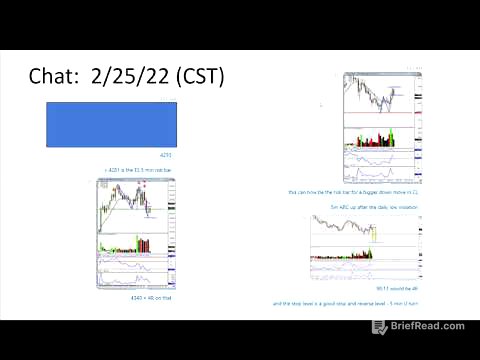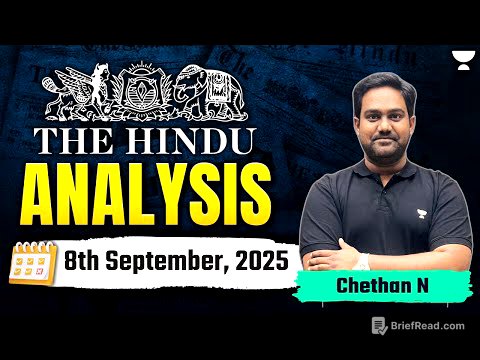TLDR;
This video advises against trading with a small personal account (around £100) due to the high risk and low probability of significant returns. Instead, it suggests investing that money in self-education and tools like backtesting software to develop a solid trading strategy. Once a strategy is in place, the recommendation is to fund a prop firm challenge using savings from a job, as it offers a more realistic path to scaling capital and gaining experience without the psychological pressures of risking a significant portion of one's net worth.
- Trading with a small account makes risk management difficult and the chances of significant returns are very slim.
- Investing in self-education and trading tools is a better use of limited funds.
- Funding a prop firm challenge with savings is a more viable path to scaling capital.
Introduction: The Reality of Trading with Limited Capital [0:00]
The video addresses the common scenario of individuals wanting to trade with a small amount of capital, such as £100. It argues that while it's possible to make some money, the likelihood of turning such a small amount into a substantial sum is extremely low. The speaker emphasizes that the primary issue with trading such a small account is the inability to effectively manage risk.
The Impossibility of Proper Risk Management with a Small Account [0:41]
Trading with a small account, like £100, makes it nearly impossible to adhere to standard risk management practices, such as risking only 1% per trade. Even with the smallest lot size, a typical stop loss can easily exceed this risk percentage, leading to significant drawdowns. The speaker highlights that the psychological impact of trading with such a small account can also lead to poor decision-making, as traders often try to "flip" the account, taking on excessive risk in the process. This approach often leads to quitting due to the stress and difficulty of recovering from losses.
Investing in Self-Education and Trading Tools [3:33]
Instead of trying to trade directly with a small amount of money, the video suggests investing it in self-education and tools that can improve trading skills. Examples include purchasing backtesting software like FX Replay (the speaker discloses an affiliate link) to develop and refine trading strategies. TradingView Premium is also recommended for accurate, real-time market data. While a trade journal can be useful, the speaker suggests using an Excel spreadsheet to track trades and analyze performance, especially when funds are limited.
Funding a Prop Firm Challenge as a Viable Alternative [5:54]
The video advises against trading with £100 and suggests getting a job to fund your lifestyle and save money. The speaker recommends using a small amount of savings to fund a prop firm challenge, starting with a smaller account size like a 10K or 25K account. The speaker shares his personal experience of starting with a 25k account, emphasizing that trading with money that doesn't significantly impact your life allows for more focus on strategy and less on the monetary value of each trade. This approach reduces psychological errors and promotes better decision-making.
Scaling Up and Learning from Experience [7:46]
Once you've used backtesting software, trading view, and a journal to develop a strategy and are consistently profitable with a prop firm, you can then consider scaling up. The key is to use the initial £100 to develop yourself as a trader, which may take several months. The speaker emphasizes that he wishes he had focused on backtesting from the beginning of his trading journey, as it saves time, stress, and money. He admits to trying account flips in the past but now recognizes that it's a poor use of capital compared to scaling with prop firms or other investment opportunities. The video concludes by reiterating that if you're looking to trade with $100, don't try to flip it in an account; instead, invest in yourself as a trader and then pursue a prop firm challenge.









